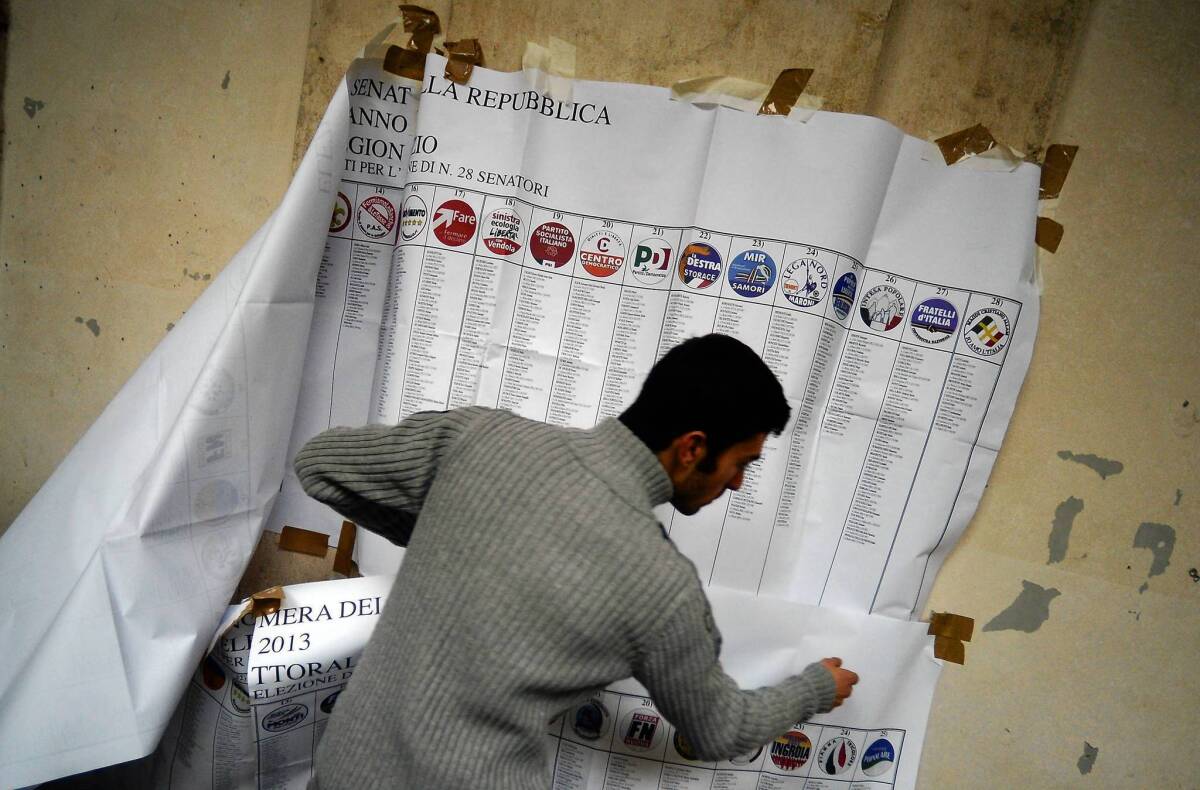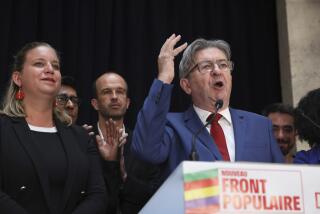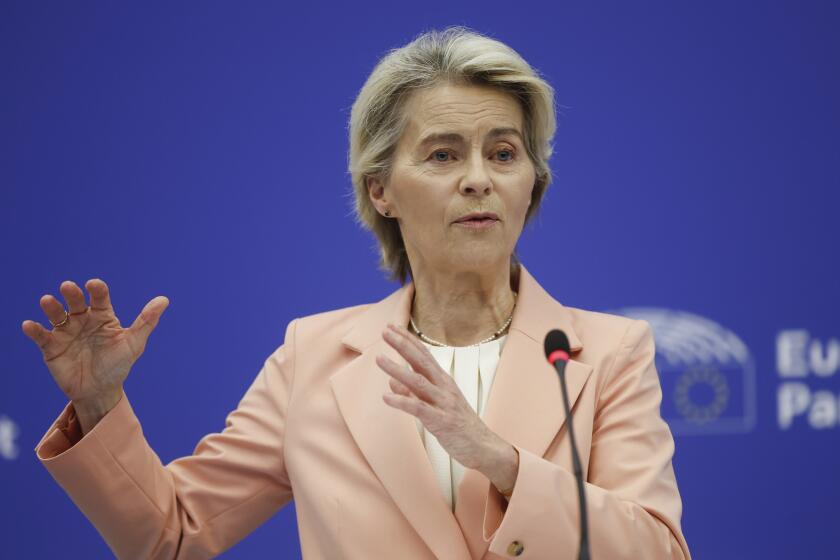Italy vote shows backlash against political establishment

ROME — After more than a year of stable but unelected government, Italy appeared headed for a period of uncertainty Monday as results from a closely watched election showed a major backlash against the political establishment and signs of gridlock in Parliament.
An inconclusive outcome threatens to unnerve investors and spark a flare-up of Europe’s debt crisis. Investors are worried that prolonged instability in Italy could compromise efforts to improve competitiveness and to turn around a lingering recession in the Eurozone’s third-largest economy.
Partial returns Monday night gave the most seats in the 630-seat lower house of Parliament to a coalition of center-left parties led by Pier Luigi Bersani, a former communist who looks likely to become prime minister. But his forces were struggling to prevail in the equally powerful upper chamber, which has about 315 seats, over the conservative camp of former Prime Minister Silvio Berlusconi, who mounted a strong comeback after having been forced to step down from office in November 2011 amid a severe loss of market confidence in his government.
And both houses must deal with the stunning success of a grass-roots protest party headed by a professional comedian, Beppe Grillo, whose 5 Star Movement came in third overall on the back of a populist, antigovernment message that offers plenty of voter disgust but little in the way of experience or concrete plans. Grillo’s rallies across Italy, marked by profanity-laced tirades against the country’s political elite, drew hundreds of thousands of supporters.
Without a decisive grip on power in both houses of Parliament, Bersani would have a tough time putting together a durable government, which raises the prospect of yet another trip to the polls for Italians months from now.
“You have an electorate split into three pieces,” said Sergio Fabbrini, a political science professor at the LUISS Guido Carli university in Rome. “It will be very difficult to identify a viable majority within the Parliament. It will be very difficult to have a coalition.”
Grillo has already said that he will cut no deals with other parties.
How long investors will wait before pulling out of Italy is another question. If enough doubt the new government’s commitment to reducing Italy’s staggering public debt of more than $2.5 trillion and reforming its moribund economy, they may push Rome’s borrowing costs back to the painful levels that shook up the political system 2 1/2 years ago.
That could reawaken the euro debt crisis, which has been relatively dormant for the last several months.
The election was the first national test of voter sentiment since outgoing Prime Minister Mario Monti and a government of unelected technocrats took over running Italy after Berlusconi’s resignation.
While European partners and the financial markets have credited Monti with restoring a seriousness of purpose to Rome and a willingness to tackle tough problems, ordinary Italians have grown angry at his painful spending cuts and attempts to overhaul the labor system and worker protections. A center-right group organized around Monti scored fewer votes than Grillo’s protest movement, a humiliating result that stemmed partly from Monti’s stiffness as a campaigner.
Despite the harsh public verdict on his policies, Monti could still emerge as an important figure in a new coalition government, possibly as finance minister.
“Our voters made a brave choice faced with a new proposal which appealed to their sense of responsibility,” Monti said. “Three million Italians voted for us, not in their own interest but for the general good.”
More to Read
Sign up for Essential California
The most important California stories and recommendations in your inbox every morning.
You may occasionally receive promotional content from the Los Angeles Times.











